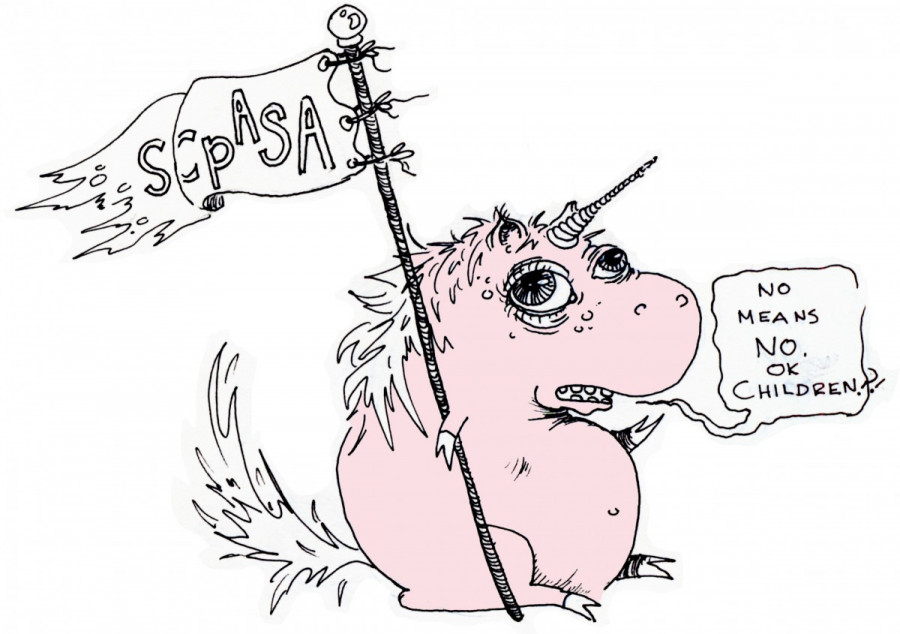At the SCPA, Consent Is Mandatory
Department Launches Project for In-Class Consent Workshops
Since the Mei-Ling scandal in 2015, the topic of consent has become increasingly important at Concordia. The case, which was the result of male Arts and Science Federation of Associations executives’ racialized sexual harassment of Mei-Ling, demonstrates that rape culture extends far beyond frosh parties—leaking into our student politics, our classrooms and our social interactions.
We at the School of Community and Public Affairs were shaken by the sexism and racism Mei-Ling experienced. It forced us to ask ourselves how we could confront rape culture in our own community.
This past September, our student association, in partnership with faculty members at the school, introduced consent workshops to our program. The workshops were given during class time, as part of required 200, 300 and 400-level courses. They were given by local sexual health educators, and the project was funded by the Concordia Student Union, ASFA and the SCPA department.
Various faculty members have eagerly collaborated on the implementation of the consent workshops. Daniel Salée, a professor in the SCPA department who actively participated in the project’s development, was happy to bring these issues to light in his classroom.
“It’s a question of education,” he said. “This is an issue, and it has to be dealt with.” He described how the various laws in place do not effectively prevent sexual violence, but believes that promoting education can help “transform mentalities.”
“Being a white male, I’ve never had to fear for my security,” Salée said. “It’s not the same for everyone.”
By choosing to hold these workshops during class time, we are able to reach a larger audience than we would have otherwise. More importantly, through this project, both students and faculty demonstrate that the issue of consent must be seen as a priority in our education. For us, consent workshops are the first step towards anti-oppression.
Following the success of the trial program last fall, we voted in our general assembly to continue and develop this project into the future.
One change mandated by the general assembly is to involve Concordia’s Centre for Gender Advocacy in future workshops. Our academic and advocacy secretary, Farhana Haque, has been in communication with the centre regarding their involvement.
According to her, working with a Concordia fee-levy organization gives the project an additional level of “community development.”
“[The Centre] is a community organization” she said, “that transcends individual associations, linking students from different departments who may want to begin similar projects.” Being an organization located on campus, the centre’s involvement would also make it “easier for future executives to coordinate and manage.”
In the coming months, we are partnering with professor Salée to propose the inclusion of a consent workshop as part of our program’s introductory class syllabus. We will be attending a faculty meeting with our proposal this month, in the hopes of ensuring the workshop is given to our students for years to come.
We recognize the significant role that racism played in Mei-Ling’s case. In the coming years, it is our association’s priority to implement similar anti-oppression projects to address racism and colonialism in SCPA classrooms and throughout Concordia.
We, at the SCPASA, hope students reading this will be inspired to create similar programs in other departments at Concordia. Challenging oppression is a collective effort, and it must begin in our own spaces in order to truly transform Concordia’s communities.


_600_832_s.png)

_600_375_90_s_c1.jpg)
_600_375_90_s_c1.jpg)
2_600_375_90_s_c1.jpg)
_600_375_90_s_c1.jpg)